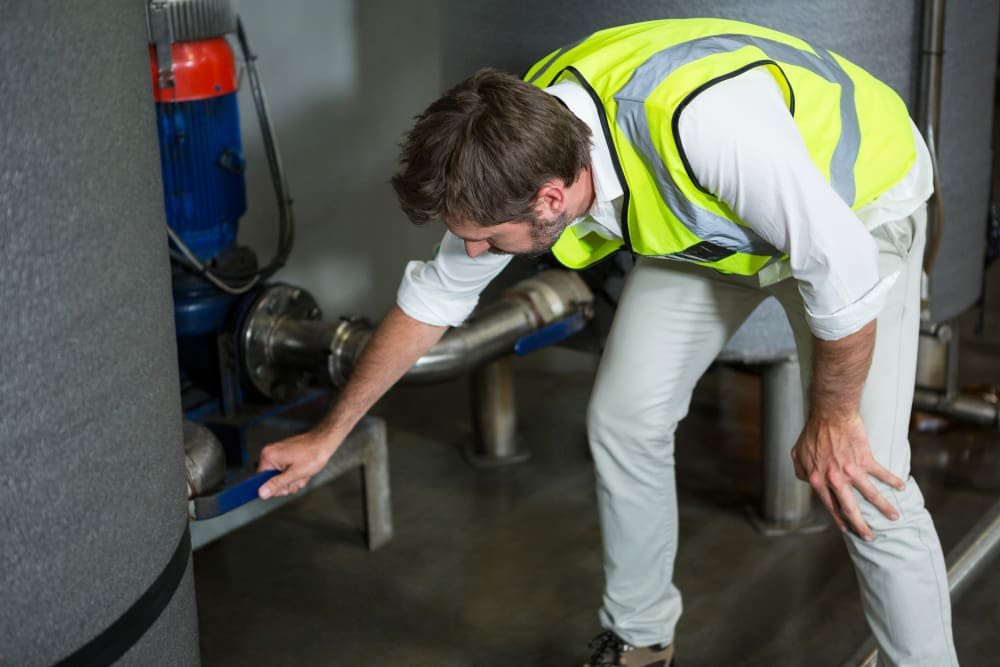When we think of gas leaks, most of us imagine a potentially dangerous explosion or fire. While these are indeed serious concerns, there’s another threat that often goes unnoticed: the health risks associated with exposure to leaking gas. Gas leaks can occur quietly, without any immediate signs, and they pose a significant threat to your health if not addressed quickly. In this post, we will delve into the potential health risks of leaking gas and why it’s crucial to stay vigilant.
What Causes Gas Leaks?
Gas leaks occur when natural gas, propane, or any other fuel gas escapes from a pipe or container that is supposed to contain it. These leaks can happen due to a variety of reasons, including poor installation, wear and tear on gas lines, improper maintenance, or even accidents. Appliances such as stoves, heaters, and water heaters, when not properly maintained or malfunctioning, can also be sources of leaks.
While these leaks often go unnoticed because natural gas is odorless, gas suppliers add a chemical called mercaptan to make it smell like rotten eggs. This smell serves as an early warning sign, alerting individuals to the presence of a leak. However, even if the smell is not immediately noticeable, there are still risks, especially if the gas leak is small and continues over time.
The Immediate Health Risks of Gas Exposure
Exposure to leaking gas can have a range of immediate health consequences, depending on the duration of exposure, the amount of gas leaked, and the specific type of gas involved. The most common types of gases that can leak into your home are natural gas and propane, both of which can be harmful when inhaled in high concentrations.
Headaches and Dizzines
One of the first symptoms people may experience when exposed to leaking gas is a headache. Natural gas contains methane, which can displace oxygen in the air, leading to reduced oxygen levels in your blood. This can result in dizziness, lightheadedness, and even confusion. If the exposure is prolonged or in higher concentrations, it may lead to more severe dizziness or fainting.
Nausea and Vomiting
If you start feeling queasy or experience nausea and vomiting, it may be a sign that you’re inhaling harmful levels of gas. The body’s natural response to an environmental toxin can include these gastrointestinal symptoms. If you feel nauseous or vomit in the presence of a gas leak, it’s important to leave the area immediately.
Respiratory Issues
Methane, the primary component of natural gas, is not necessarily toxic in small amounts, but it can displace oxygen in your home, leading to difficulty breathing. If exposed to higher levels of leaking gas, it may cause shortness of breath, a tight chest, or even an asthma-like response. Individuals with pre-existing respiratory conditions such as asthma or COPD may be particularly sensitive.
Fatigue and Weakness
Chronic exposure to low levels of gas leaks can lead to feelings of fatigue and general weakness. As the body struggles to get the oxygen it needs, it can lead to a general sense of tiredness or lethargy. If you’re constantly feeling drained without a clear reason, a gas leak could be to blame.
Increased Heart Rate
Low oxygen levels caused by a gas leak can also lead to an increased heart rate or palpitations. This is because the heart works harder to compensate for the lack of oxygen. If you notice your heart racing without physical exertion, it’s essential to investigate the air quality in your home.
Long-Term Health Risks
While the immediate effects of gas leaks can be distressing, prolonged exposure can result in more severe health risks. The longer you’re exposed to leaking gas, the higher the potential for lasting damage to your body.
Neurological Damage
Long-term exposure to natural gas leaks, especially in poorly ventilated spaces, can affect your nervous system. Some people may experience memory problems, mood swings, or difficulty concentrating. Chronic exposure to gas leaks has been linked to symptoms that resemble those of carbon monoxide poisoning, including confusion, cognitive impairment, and a general decline in mental functioning.
Heart Problems
The lack of oxygen in the blood caused by a gas leak can strain the cardiovascular system over time. Those who have pre-existing heart conditions may find that gas leaks exacerbate their symptoms, potentially leading to long-term damage or increasing the risk of heart attacks.
Carbon Monoxide Poisoning
A particularly dangerous consequence of gas leaks is carbon monoxide (CO) poisoning. This colorless, odorless gas is a byproduct of incomplete combustion and can be produced by faulty gas appliances. CO interferes with the body’s ability to carry oxygen, leading to a condition known as hypoxia, which can be fatal if not addressed immediately.
Preventing Gas Leaks and Protecting Your Health
The good news is that many of the risks associated with gas leaks can be avoided with proper safety measures. Here’s how you can protect yourself and your family from the dangers of leaking gas:
Regular Inspections and Maintenance
Have your gas appliances and piping inspected by a professional at least once a year. Regular maintenance ensures that everything is functioning correctly and can help detect any potential issues before they become serious.
Install Gas Detectors
Installing gas detectors in your home offers an added layer of safety. These devices detect the presence of gas in the air and alert you promptly, allowing you to evacuate and seek professional assistance. If you’re in Utah, consider investing in reliable gas leak detection systems to ensure your home is protected from this silent danger.
Know the Signs of a Gas Leak
In addition to the smell of gas, be aware of other signs such as hissing sounds near gas lines, dead vegetation around your property, or the presence of unusual condensation on windows.
Ventilation is Key
If you suspect a gas leak, open windows and doors to ventilate the area. Avoid using any electrical devices or lighting matches, as sparks could ignite the gas.
In Conclusion
Gas leaks may seem like a minor inconvenience, but they pose significant risks to your health. From headaches and nausea to long-term neurological damage, exposure to leaking gas should never be taken lightly. By staying vigilant, conducting regular inspections, and having gas detectors in place, you can keep your home and loved ones safe from this silent but dangerous threat.
Read More On Home threads org







